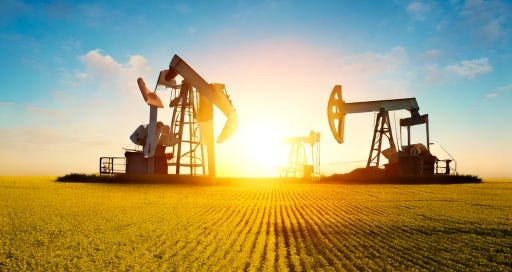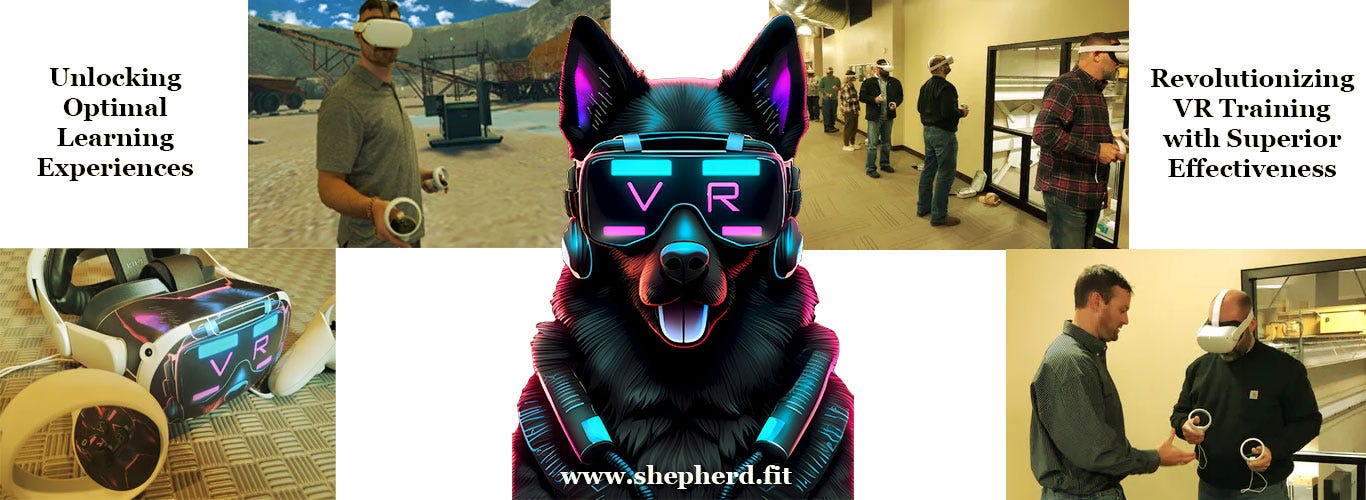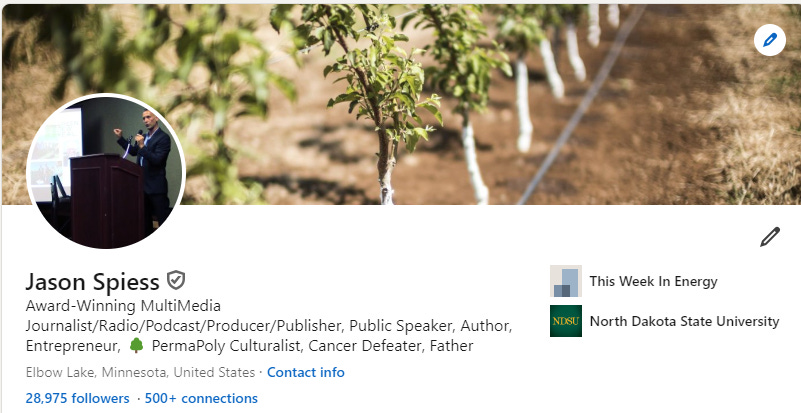From Seed to Shelf, Energy and Ag's Daily Partnership
Modern farming is a heavily mechanized industry, and nearly every piece of agricultural equipment relies on oil and gas.
In the modern world, few industries are as essential to everyday life as agriculture and oil and gas. While they may seem unrelated at first glance—one focused on food production, the other on energy and fuel—they are deeply intertwined. From the fuel that powers farm equipment to the petroleum-based packaging that protects food on store shelves, oil and gas play an indispensable role in every stage of agriculture.
This article explores how agriculture and the oil and gas industry coexist on a daily basis, following the journey of food from seed to shelf and highlighting the many touchpoints where these industries intersect.
1. The Role of Oil & Gas in Farming Equipment and Operations
Modern farming is a heavily mechanized industry, and nearly every piece of agricultural equipment relies on oil and gas. Tractors, combines, planters, sprayers, and irrigation pumps are all powered by diesel, gasoline, or natural gas. Without these fuels, large-scale farming operations would grind to a halt.
Diesel and Gasoline for Machinery
Tractors and combines consume vast amounts of diesel during peak planting and harvest seasons.
Pickup trucks, ATVs, and transport vehicles used on farms rely on gasoline and diesel to move workers and supplies.
Fuel efficiency improvements, driven by advancements in oil and gas refining, have reduced costs for farmers.
Lubricants and Hydraulic Fluids
Petroleum-based lubricants keep engines, gears, and hydraulic systems running smoothly.
Synthetic oils, often derived from natural gas, extend the life of farm machinery and reduce maintenance costs.
Irrigation and Water Management
Many irrigation systems are powered by pumps that run on natural gas or diesel.
Polyethylene pipes used for irrigation lines are made from petroleum-derived plastics.
Without the oil and gas industry, food production would be slower, more expensive, and far less efficient.
2. Fertilizers and Crop Protection
A significant percentage of modern fertilizers are derived from petroleum or natural gas. The Haber-Bosch process, which converts atmospheric nitrogen into ammonia for fertilizers, depends on natural gas as both a feedstock and an energy source.
Petroleum-Based Fertilizers
Ammonia (NH₃), urea, and ammonium nitrate fertilizers are all produced using natural gas.
Phosphorus and potassium fertilizers require large-scale mining operations powered by petroleum-fueled equipment.
Pesticides and Herbicides
Many pesticides and herbicides contain petroleum-based chemical compounds.
These products protect crops from pests and diseases, improving yield and reducing food waste.
Without oil and gas, synthetic fertilizers and pesticides would be scarce, significantly decreasing global food production.
3. Transportation of Raw Agricultural Goods
Once crops are harvested, they need to be transported for processing and distribution. The oil and gas industry provides the fuel and infrastructure necessary to move food efficiently from farms to processing plants and storage facilities.
Truck and Rail Transport
Diesel-powered semi-trucks transport grain, fruits, and vegetables across the country.
Railcars, often fueled by diesel locomotives, move bulk commodities like corn, wheat, and soybeans.
Cold Storage and Refrigeration
Perishable products rely on refrigerated trucks and storage units powered by oil and gas-derived refrigerants.
Petrochemical-based insulation materials help maintain temperature stability during transport.
Without affordable fuel for transportation, food prices would skyrocket due to increased logistics costs.
4. Processing and Manufacturing
Food processing facilities depend on natural gas and petroleum-based products to operate efficiently.
Energy for Processing Plants
Natural gas is a primary energy source for processing plants that clean, package, and prepare food for sale.
Steam boilers powered by natural gas are essential for sterilization, pasteurization, and cooking processes.
Plastics in Food Manufacturing
Conveyor belts, food storage containers, and packaging materials are often made from petrochemicals.
Petrochemical-based coatings prevent corrosion in food processing machinery.
5. Packaging and Preservation
Once food is processed, it requires packaging to maintain freshness and extend shelf life.
Plastic Packaging
Most food packaging materials, including plastic wrap, bottles, and containers, are derived from petroleum.
Vacuum-sealed plastic extends the shelf life of meats, dairy, and perishable goods.
Cardboard and Ink
Even paper and cardboard packaging rely on petroleum-based inks and coatings.
Wax-coated cardboard, used for shipping produce, contains petroleum-based paraffin.
Without petroleum-based packaging, food spoilage rates would increase, leading to greater food waste and higher costs for consumers.
6. Retail Distribution and Sales
The final stage of the food supply chain relies on oil and gas for distribution, refrigeration, and even payment processing.
Grocery Store Operations
Supermarkets use natural gas for heating and cooking in prepared food sections.
Diesel-powered trucks ensure fresh deliveries arrive on time.
Refrigeration systems, powered by oil and gas derivatives, keep produce, dairy, and frozen foods at safe temperatures.
E-Commerce and Delivery Services
Online grocery delivery services rely on gasoline-powered vehicles.
Petrochemical-based packaging ensures food remains fresh during transit.
Conclusion: A Symbiotic Relationship
The agriculture and oil and gas industries are deeply interconnected, ensuring that food moves efficiently from seed to shelf. Without petroleum and natural gas, modern farming would struggle to operate, transportation costs would rise, food processing would slow, and grocery store shelves would be empty.
As technology advances, both industries continue to innovate, finding ways to increase efficiency while reducing environmental impact. Whether through biofuels, precision agriculture, or sustainable packaging, the partnership between agriculture and oil and gas remains essential to feeding the world.
By understanding this relationship, we can better appreciate how these two industries work together to sustain our modern way of life.
As Earth Month and Citizen Science Month remind us of our collective responsibility to protect the environment, the oil and gas industry’s evolving role in sustainability is worth recognizing.
While challenges remain, the sector’s contributions to reclamation, technological innovation, and citizen science initiatives demonstrate its commitment to reducing environmental impact and enhancing ecological resilience.
Through continued collaboration between industry leaders, scientists, and citizen volunteers, we can work toward a future where energy production coexists with a healthier planet.
April serves as a crucial reminder that everyone, including major industries, has a role to play in environmental stewardship and cultivating tomorrow’s STEM leaders today.
Article by Jason Spiess. Spiess has over 35 years of media experience from being the host to the publisher to an editor to the executive producer to having principal ownership in several media companies.
Spiess is currently the host of several newsmagazine radio podcasts that carry a 20-plus radio network, as well as worldwide through iHeart, Spotify and other podcast platforms. Spiess also operates a diverse professional social media audience with his media brands of over a combined 400K followers.
In addition to his newsmagazine radio podcasts, Spiess is a regular contributor to many industry publications and traditional news websites.
Spiess is a full-time father, cancer survivor, small regenerative/permaculture farmer, environmental steward, educator, speaker, author and graduate of North Dakota State University. Spiess also operates an off-the-grid office integrating sustainable solutions, including the best practices with an Industrial Forest and Digital Diversity.
Everyday your story is being told by someone. Who is telling your story? Who are you telling your story to?
Email your sustainable story ideas, professional press releases or petro-powered podcast submissions to thecontentcreationstudios(AT)gmail(DOT)com.
#thecrudelife promotes a culture of inclusion and respect through interviews, content creation, live events and partnerships that educate, enrich, and empower people to create a positive social environment for all, regardless of age, race, religion, sexual orientation, or physical or intellectual ability.
CLICK HERE FOR SPECIAL PARAMOUNT + DISCOUNT LINK
Paramount+ offers its subscribers a plethora of quality content.
From instant classic films to banger TV shows like 1883 and Smile 2, there’s no shortage of entertainment to explore.
How about the new series Happy Face? It’s getting fabulous reviews.
Start Streaming Today!












